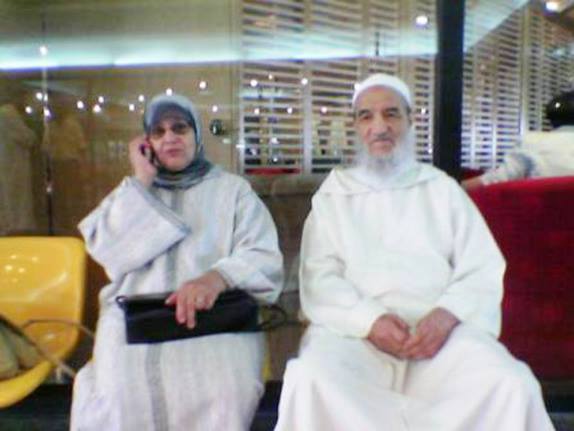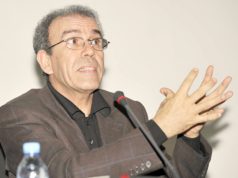[symple_box]
 International columnist, political analyst and senior journalist Ahmed Mohiuddin Siddiqui’s articles are published across Asia, Africa and Europe. He writes for The Moroccan Times, The Tunis Times, India Tomorrow, Kohram News, The Etemaad Urdu Daily and for news papers published from Muscat, Sultanate of Oman. You can follow him on Twitter at: @journopolana[/symple_box]
International columnist, political analyst and senior journalist Ahmed Mohiuddin Siddiqui’s articles are published across Asia, Africa and Europe. He writes for The Moroccan Times, The Tunis Times, India Tomorrow, Kohram News, The Etemaad Urdu Daily and for news papers published from Muscat, Sultanate of Oman. You can follow him on Twitter at: @journopolana[/symple_box]
Ahoy! The Arab Spring has returned to Tunisia yet again with the announcement of the prestigious Nobel Peace Prize for the Tunisian Quartet of four organizations responsible for a ‘‘decisive contribution to the building of a pluralistic democracy in Tunisia.’’ The Norwegian Nobel Committee has paid a handsome tribute to the work of the Quartet thus:
“The Norwegian Nobel Committee has decided that the Nobel Peace Prize for 2015 is to be awarded to the Tunisian National Dialogue Quartet for its decisive contribution to the building of a pluralistic democracy in Tunisia in the wake of the Jasmine Revolution of 2011. The Quartet was formed in the summer of 2013 when the democratization process was in danger of collapsing as a result of political assassinations and widespread social unrest. It established an alternative, peaceful political process at a time when the country was on the brink of civil war. It was thus instrumental in enabling Tunisia, in the space of a few years, to establish a constitutional system of government guaranteeing fundamental rights for the entire population, irrespective of gender, political conviction or religious belief.
The National Dialogue Quartet has comprised four key organizations in Tunisian civil society: the Tunisian General Labour Union (UGTT, Union Générale Tunisienne du Travail), the Tunisian Confederation of Industry, Trade and Handicrafts (UTICA, Union Tunisienne de l’Industrie, du Commerce et de l’Artisanat), the Tunisian Human Rights League (LTDH, La Ligue Tunisienne pour la Défense des Droits de l’Homme), and the Tunisian Order of Lawyers (Ordre National des Avocats de Tunisie). These organizations represent different sectors and values in Tunisian society: working life and welfare, principles of the rule of law and human rights. On this basis, the Quartet exercised its role as a mediator and driving force to advance peaceful democratic development in Tunisia with great moral authority. The Nobel Peace Prize for 2015 is awarded to this Quartet, not to the four individual organizations as such.
The Arab Spring originated in Tunisia in 2010-2011, but quickly spread to a number of countries in North Africa and the Middle East. In many of these countries, the struggle for democracy and fundamental rights has come to a standstill or suffered setbacks. Tunisia, however, has seen a democratic transition based on a vibrant civil society with demands for respect for basic human rights.
An essential factor for the culmination of the revolution in Tunisia in peaceful, democratic elections last autumn was the effort made by the Quartet to support the work of the constituent assembly and to secure approval of the constitutional process among the Tunisian population at large. The Quartet paved the way for a peaceful dialogue between the citizens, the political parties and the authorities and helped to find consensus-based solutions to a wide range of challenges across political and religious divides. The broad-based national dialogue that the Quartet succeeded in establishing countered the spread of violence in Tunisia and its function is therefore comparable to that of the peace congresses to which Alfred Nobel refers in his will.”
My gut feeling was that Tunisians will bag the much coveted Nobel Peace Prize for their excellent work to nurture democracy in Tunisia against herculean hardships. I have been a strong votary of strengthening democratic roots in Tunisia in the wake of terrorist onslaughts. My analysis of the Tunisian election results in The Tunis Times dated 28th October 2014 – Tunisian election results strengthen democracy in the land of Arab Spring and later my article in The Moroccan Times dated 19th March 2015 – Tunisia – Not Just Museum, Arab World’s Most Successful Arab Democracy Under Attack –are pointers to my faith and trust that democracy can be sustained and Tunisians can be empowered to a way for new life for peace and development. My faith and trust seems to have been answered by the Nobel Peace Prize Committee by awarding and rewarding the Quartet. It is a sort of personal endorsement for me. I am much elated as the Tunisians themselves.
Democracy is the harbinger of peace and development. It empowers the common man. It is the perfect answer to stand up against oppression even in the most hostile conditions. The award for the Tunisian Quartet imposes new responsibilities on the Tunisians in general and the political organizations to further boost democratic institutions. Terrorism is an ugly face of modern life. Equal opportunity, dignity, protection of human rights, women’s empowerment and a peaceful and prosperous life can be ensured only through democracy.
Tunisia is now a bright and enduring example for oppressed people in different countries. It has shown the glorious path to democracy. There is an increased hope and inspiration that Tunisia will be a beacon of democratic awareness. No one can doubt about the insulating power of the brave Tunisians to sustain democracy and defeat oppression and terrorism after this Nobel award.
Tunisia, the show must go on! The modern world will be watching with renewed interest how democracy will move forward in this historical and glorious Arab land. Participation of more number of women in the democratic process and assigning women important positions and roles will earn more respect for Tunisia. Every Tunisian must reap the fruits of democracy!






